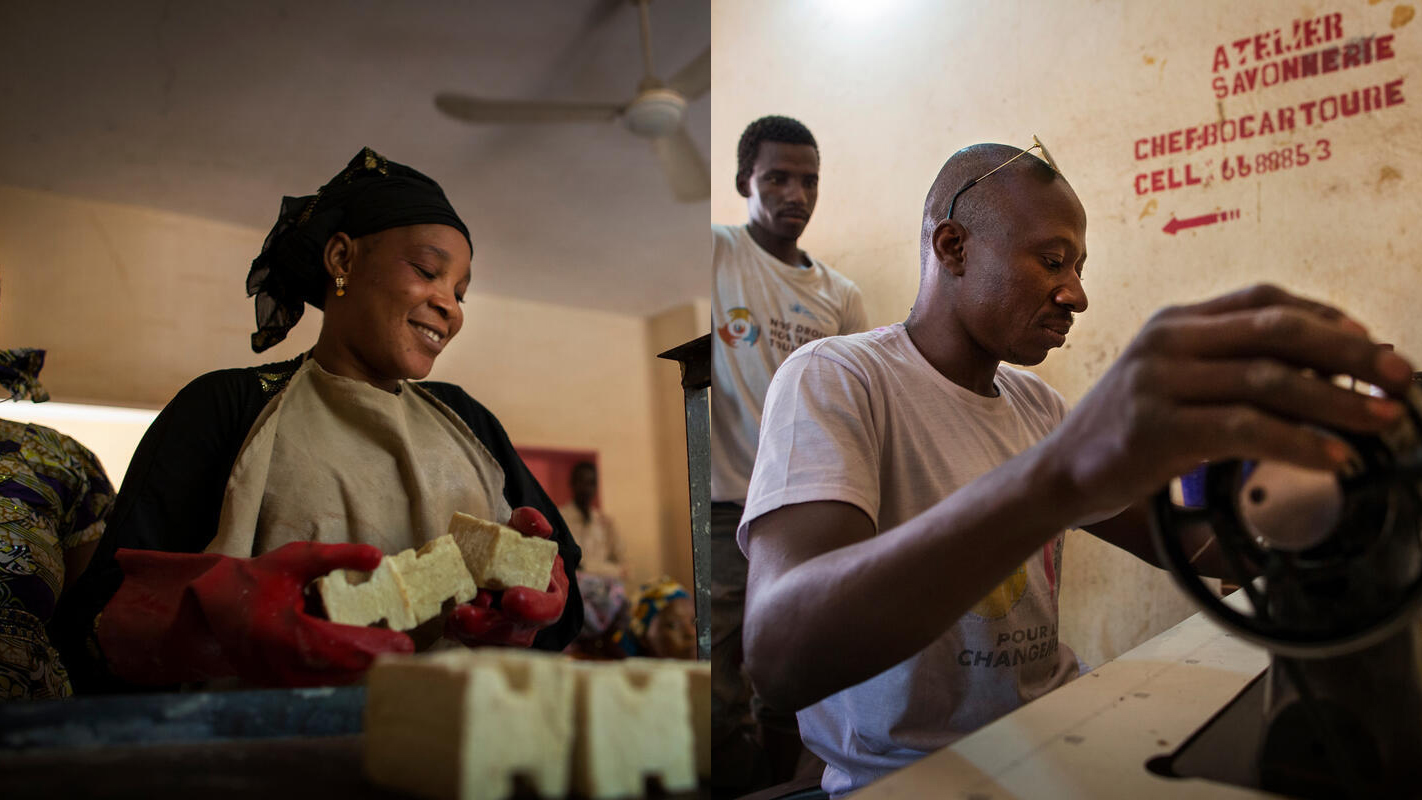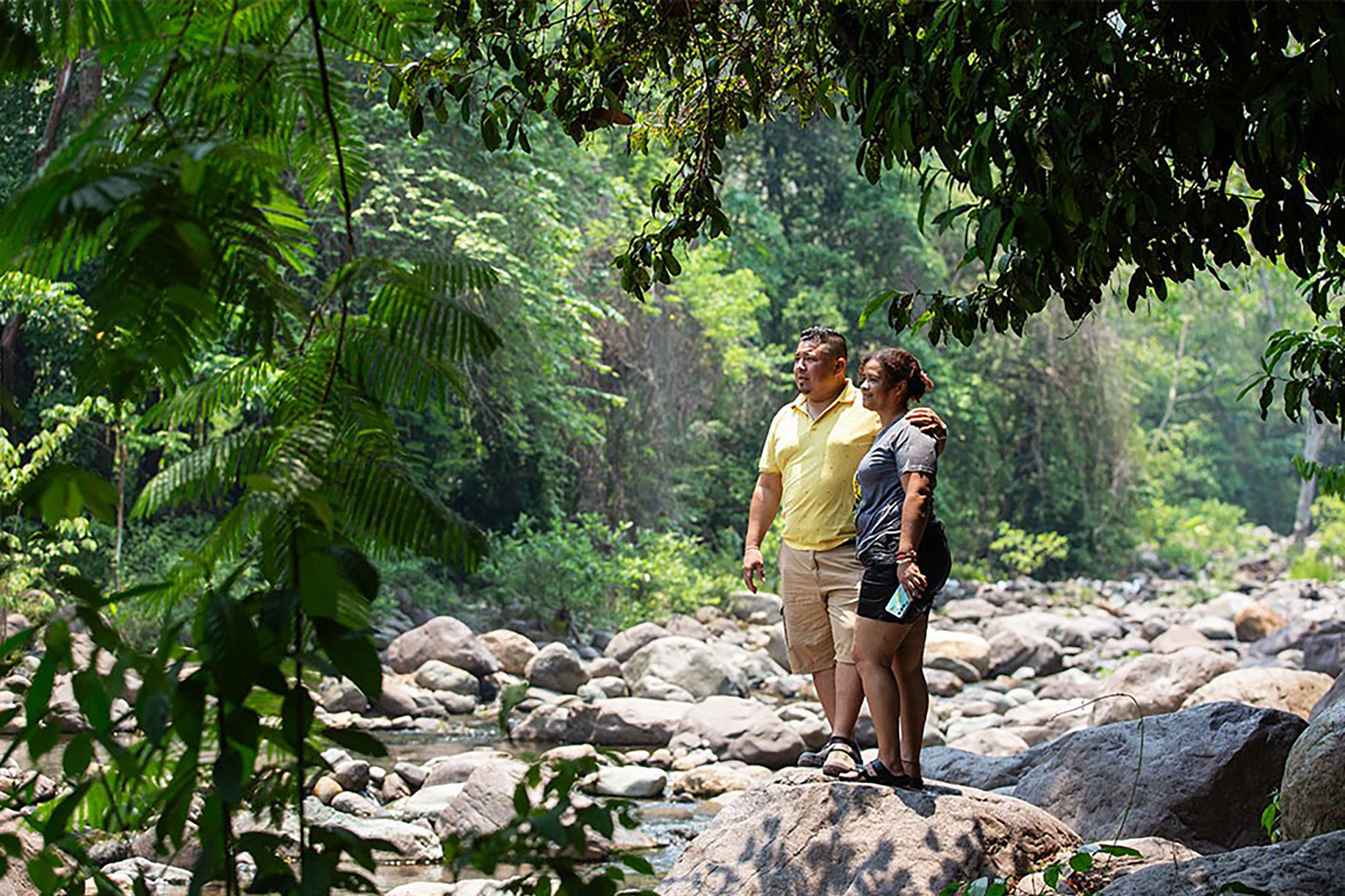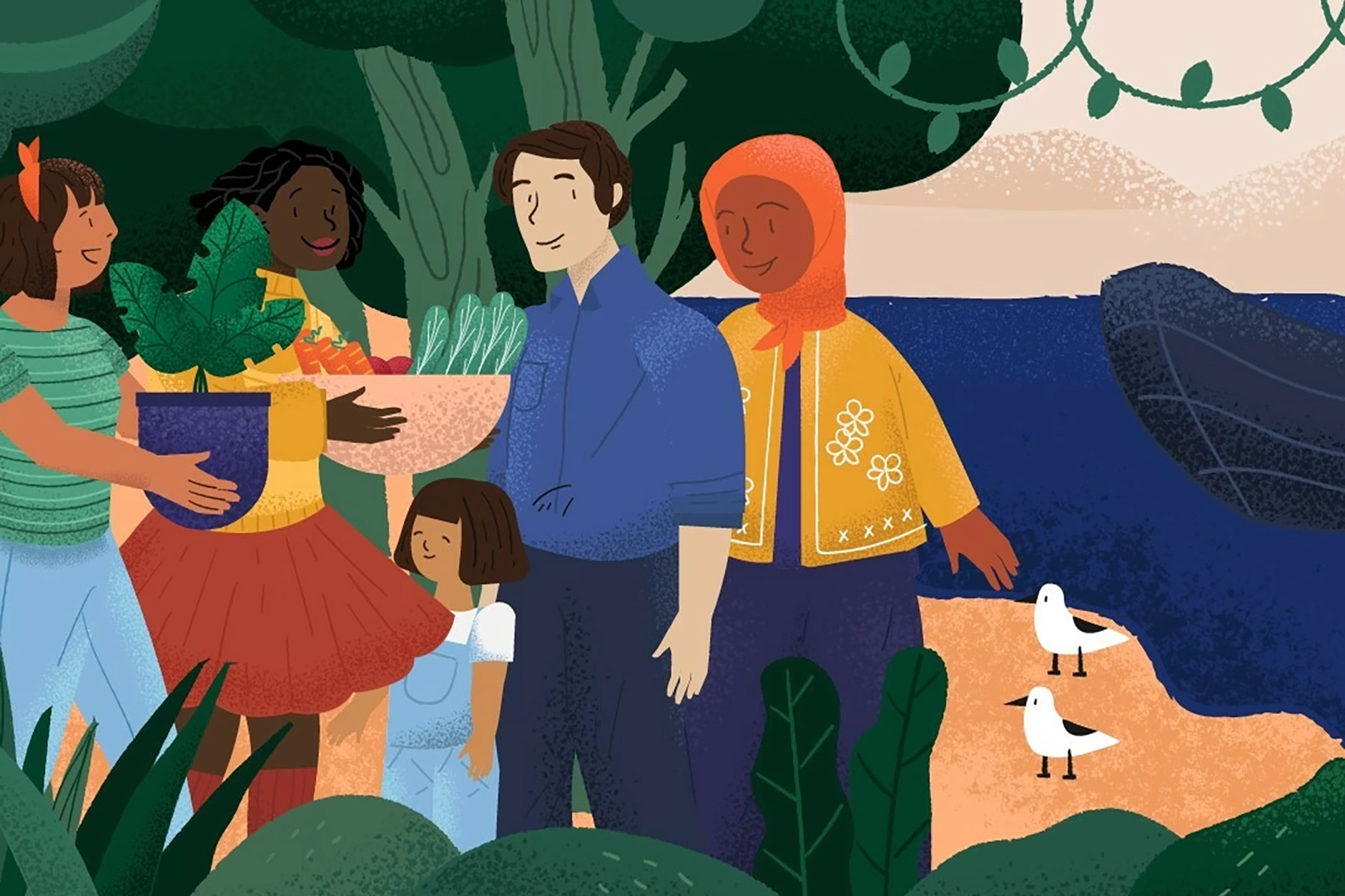Find out more in
Human Rights
UN Human Rights and the UN system advocate for the universal abolition of the death penalty for three main reasons: it is profoundly difficult to reconcile with human rights, especially the right to life; however robust a judicial system may be, it is prone to bias and error; and there’s little to no evidence that the death penalty is a significant deterrent to crime in general. The US continues to face issues of due process, racial bias, and reliability of testimonies in capital punishment cases, raising concerns about wrongful convictions and the risk of executing innocent people. According to civil society, around 200 death row prisoners have been exonerated in the US since 1973 because of wrongful convictions, some of them posthumously.
As we celebrate World Food Day, it’s crucial to acknowledge that despite food being a fundamental human right, millions still face hunger due to conflicts, inequalities, and economic downturns, underscoring the urgent need for access to diverse, nutritious foods for all.
UN Special Rapporteur Tomoya Obokata urged reforms to end the exploitation of incarcerated individuals, stating their right to decent work and the need for better conditions, protections, and rehabilitation opportunities within prison systems globally.
The Roma minority in Moldova has long faced discrimination in various aspects of life. A program led by UN Human Rights Moldova is helping vulnerable Roma families integrate into society through trained Roma community mediators. For example, Raisa Demeniuk, a Roma community mediator, helped a marginalized family obtain identity documents, enroll their children in school, and access healthcare and social protection benefits, improving their livelihoods and social inclusion.
The organization of collectives to search for disappeared persons in Mexico has grown exponentially in the last 15 years. Official records indicate that there are currently 115,000 people whose whereabouts are unknown. The highest concentration of disappearances occurred from 2006 to date, coinciding with the beginning of the 'war on drugs.' According to UN Human Rights, the main challenges include widespread impunity, deficient institutional capacities to search for people, limited institutional coordination and collaboration, insecurity, and risks faced by human rights defenders. The UN Human Rights office in Mexico is working to advance the fight against the disappearance of persons by providing technical advice, aiding civil society organizations, and increasing visibility and awareness of the problem.
The Human Rights Council will hold its 57th regular session (9 September-11 October) at the United Nations in Geneva. On its opening day, the session will be addressed by the United Nations High Commissioner for Human Rights, Volker Türk, with reflections on pressing human rights issues from around the world. During the session, the Council will hold around 30 interactions with special rapporteurs, expert mechanisms and investigative probes, and with Mr. Türk on Nicaragua, Myanmar, Ukraine, Honduras, and Haiti. The 47-member Council will also hold discussions on Afghanistan, Sudan, racial justice and equality in law enforcement, the nuclear legacy in the Marshall Islands, and the Democratic Republic of the Congo, among other topics.
The community of Guapinol in northern Honduras, with a population of 3,000, depends on agriculture, livestock, and remittances from the United States. Surrounded by African palm plantations, the Guapinol River is slowly returning to being a source of shade and clean water, as it always had been until 2018 when people realized that the water became heavily polluted. Juana Zúniga, an environmentalist, and her partner José Cedillo have fought for the human right to a healthy environment. Their advocacy led to the passing of an important law, Executive Decree 18-2024, which safeguards protected areas in Honduras and prohibits mining in these areas.
On the seventh commemoration of the International Day of Remembrance of and Tribute to the Victims of Terrorism on 21 August 2024, join us to honor the powerful voices of victims as they use their experiences and journeys to create meaningful and positive change by raising awareness about the long-lasting impact of terrorism. By amplifying these voices, the International Day seeks to inspire collective action and empower individuals and communities to work towards a future defined by peace, solidarity, and resilience.
Meet musician Austin Zhang who uses the power of music, by harmonizing his saxophone jazz melodies with a recording of his mother’s own story of migration to accentuate the emotions of her story. In this episode of the UN Human Rights podcast, #StandUp4HumanRights, the Office of the United Nations High Commissioner for Human Rights (OHCHR) focuses on how migration is not one-dimensional and why telling individual stories of migration, which reflects all dimensions of people can help avoid the pitfall of triggering a harmful narrative about migration.
Esther, whose name has been changed for protection, was raped when she was four months pregnant and sleeping in a public square with her six children, having been forced from home. She received counselling from a UNFPA health centre, but her situation is still dire. You can hear her tell her story in this video.
The situation in Haiti is desperate. Gang violence has forced more than half a million people across the country to flee their homes. The capital reverberates with gunshots day and night, and sexual violence is carried out with impunity. Here, in this deeply personal series of portraits, women and girls share their insight into the stark reality of life today in Port-au-Prince, while UNFPA and partners work around the clock to prevent and alleviate suffering.
Between the 16th and 19th centuries, around 27 million Africans were forcefully taken from their homes and shipped across the Atlantic. Only 7.4 million reached their destination, where they faced exploitation and abuse. The impact of the slave trade persists, perpetuating racism and inequality. UNESCO established 23 August as the International Day for the Remembrance of the Slave Trade and its Abolition to bring attention to the history of enslavement. On this day, let's pay tribute to the victims and freedom fighters by renewing our commitment to eradicating racism and discrimination.
Recent developments in generative artificial intelligence and the application of artificial intelligence raise serious human rights concerns, including racial discrimination, according to the UN Special Rapporteur on contemporary forms of racism, racial discrimination, xenophobia, and related intolerance. Ashwini K.P. warns that there is an enduring and harmful notion that technology is neutral and objective but in a new report she explores how this assumption allows artificial intelligence to perpetuate racial discrimination. The Rapporteur notes that a clear example of how racial bias is reproduced through technological advances is predictive policing.
In 2023, Yemen saw a significant arrival of women and girls from the Horn of Africa, totalling 21,130, including 3,773 girls. Many of these migrants endured severe forms of sexual violence, abuse, and exploitation, inflicted by ruthless traffickers and smugglers. Rehana was one of those who faced these horrors firsthand. Arriving at the International Organization for Migration (IOM) facilities in Aden, many migrants, like Rehana, suffer from injuries, severe dehydration, and abuse. Held by smugglers in abysmal conditions, they endure physical and sexual violence. Rehana, like many others, receives mental health and psychological support at the Migrants Response Point, aiding her emotional recovery.
Amid the arid landscapes of Zinder, a migration-prone area in central-eastern Niger, 11-year-old Zara's journey back home sheds light on the battle against child trafficking. Zara was sent to Algeria by her mother to find work but was intercepted during the journey. According to the International Organization for Migration (IOM), more than half of the child victims reported the involvement of friends and family in their recruitment into trafficking, especially where extreme poverty is common. The Centre for Victims of Trafficking, managed by the National Agency for the Fight against Trafficking in Persons and Illicit Migration with support from IOM, has become a sanctuary for survivors like Zara.














